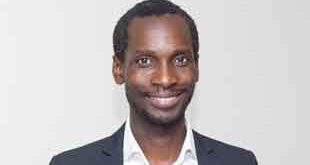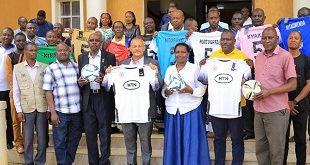
He spoke up on democracy, constitutionalism, and human rights
Kampala, Uganda | RONALD MUSOKE | Since the death on Sept.05 of Archbishop Jonah Lwanga in Athens, Greece, the spiritual leader of more than 500,000 Ugandans who are Greek Orthodox Christian, tributes have been pouring in.
“It is really sad and a great loss indeed to all of us who have had contact with him. May his soul rest in peace and his memory be eternal,” said Archbishop Makarios of Nairobi who is now the Caretaker of the Uganda Orthodox Church, as he conducted the Trisagion for the fallen Archbishop on Sept.10.
Charles Peter Mayiga, the Katikkiro of Buganda says Lwanga was a champion of human rights, the rule of law, development and unity of Ugandans. He left a legacy of an inspirational religious leader, Mayiga said.
Under Archbishop Lwanga, the Greek Orthodox Church in Uganda has grown exponentially. Throughout his leadership, Lwanga has sought to address issues of spiritual growth as well as the social development of Ugandans; especially women and their children. He has also fought against poverty, hunger and illiteracy.
The clergy of the Orthodox Church now consists of about 80 priests, 105 Orthodox communities, schools and a hospital. It boasts of a strong Orthodox Mother’s Union.
In celebration of Lwanga’s achievements, the Metropolitan was on Oct.27, 2017 elevated to the rank of an Elder (Geronta/Yeronda) by the Holy Synod in Alexandria. It was a worthy achievement for Lwanga who grew up surrounded by the missionary work of the pioneer Orthodox Ugandans.
He was born on July 18, 1945 to George William Kayonjo and Keziah Nabitaka at Ddegeya, in present day Luweero District, just one year before Orthodox Christianity was recognised by the British colonial government.
The religion had been established in the early 1900s by Lwanga’s grandfather, Obadiah Basajjakitalo alongside Ruben Spartas Mukasa. In 1952, Lwanga began his academic journey in Bulemezi until he finished his secondary education in 1964.
He departed the same year to Crete, Greece, to do his Ecclesiastical studies until 1968, according to his biography on the Uganda Orthodox Christianity website. Following graduation from the Ecclesiastical School, he continued his studies at the University of Athens, graduating in 1973 with a degree in Philosophy.
Lwanga stayed at the University of Athens until 1978, this time obtaining a degree in Theology. In 1979, he headed back to Uganda, serving as Secretary of the Uganda Mission under Archbishop Frumentios until May 1, 1981 when he was ordained to the diaconate.
In October, 1981, the then Bishop of Androusa (1972-1991), His Beatitude, Anastasios, arrived in Kenya in order to become Vicar for East Africa, following the death of Archbishop Frumentios.
His Beatitude ordained Deacon Jonah Lwanga to the Holy Priesthood in 1982. In the same year, as Professor of Theology, he was sent to the Ecclesiastical School of Makarios III in Riruta, Nairobi, which had been inaugurated in the previous year.
It was also the same year that Lwanga was elevated to Archimandrite and was sent to serve as Vicar Bishop in Bukoba, Tanzania. He was there for 10 years until he was elected by the Holy Synod as Metropolitan of Kampala and All Uganda.
In 2019, Lwanga proudly noted that his church in central Africa, under the Eastern Orthodox Church of Alexandria, celebrated a century of important work in the country.
“We celebrate the centenary of Greek Orthodoxy in Uganda. Starting in 1919 and with God’s help, we managed to convince many native Ugandans that there is a different faith called Orthodoxy,” the Metropolitan related in a 2019 documentary.
Many who knew him praise the head of Uganda’s Orthodox Church for speaking up on democracy, constitutionalism, human rights abuses and other social ills that continue to plague society.
Even when President Yoweri Museveni has in the past ordered top religious leaders to concentrate on spiritual affairs, Archbishop Lwanga remained committed, often times, speaking frankly on issues affecting ordinary Ugandans.
Some within government even accused him of belonging to the opposition and being a foe of the National Resistance Movement (NRM) government. But Lwanga remained resolute.
“The work to show them where to go is ours, it’s not his (President Museveni) and that is the only truth that can make us free,” said Lwanga in one of his speeches. “Politicians all over the world think that everything belongs to them yet they live off ordinary people’s taxes. They forget that they are our servants.”
 The Independent Uganda: You get the Truth we Pay the Price
The Independent Uganda: You get the Truth we Pay the Price


